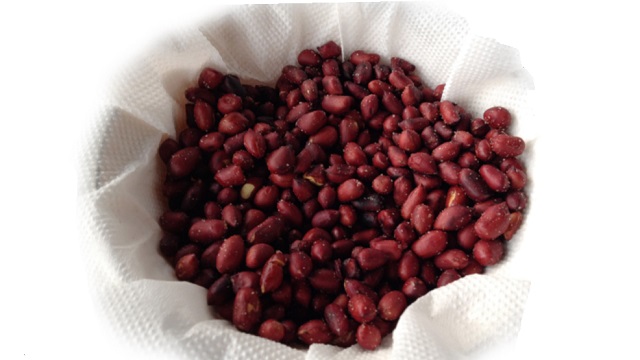
It depends on a complex interaction between nerve cells and blood vessels
| THE INDEPENDENT | Men participating in a clinical trial who added two handfuls of nuts a day to their regular diet reported improvements in sexual function.
The 14-week trial compared a group of men who added a daily dose of certain nuts to a Western style diet with an equivalent group of men who ate the same diet but without nuts.
The daily dose of nuts comprised 60 grams (g) — the equivalent of about two handfuls — of almonds, hazelnuts, and walnuts.
The investigators, who hail from research centers in Spain, believe that this is the first study to show that eating nuts can benefit sexual function.
They report their findings in a paper that features in the journal `Nutrients’.
A 2018 analysis of the trial data had already reported that daily consumption of these nuts appeared to improve sperm quality.
The recent analysis uses the same trial data but focuses on the effect of nut consumption on sexual and erectile function.
The findings suggest that adding nuts to a Western style diet can improve orgasm quality and sexual desire.
The researchers used two sources of data to assess changes in erectile function: participant responses to questionnaires and biomarkers in blood samples.
Erectile dysfunction and risk factors
Erectile dysfunction (ED) is the inability to get an erection and keep it long enough to have satisfactory sexual intercourse. The condition is more likely to affect older men than younger men.
According to the National Institute of Diabetes and Digestive and Kidney Diseases, which is one of the National Institutes of Health (NIH), ED is common in the United States, where it affects about 30 million men.
The authors note that although there has been progress in ED research, the findings on primary prevention are largely preliminary.
Lifestyle factors that can raise the risk for ED include smoking, insufficient physical activity, stress, consuming too much alcohol, carrying too much weight, and having an unhealthful diet.
A daily dose of nuts could help keep off the weight that people tend to gain as they enter adulthood, research suggests.
These factors can influence erectile function through their effects on the biology of blood vessels and nerves. To have and maintain an erection, it is necessary to have an adequate supply of blood.
An erection depends on a complex interaction between nerve cells and blood vessels. The process also requires the presence of nitric oxide (NO), a compound that helps muscle tissue in the penis produce and relax an erection.
The effect of diet
Some studies have linked the Mediterranean diet, as well as diets that share some of its features, to a lower risk of ED and sexual dysfunction.
These studies have also linked such diets to improvements in endothelial function. The endothelium in the walls of blood vessels helps maintain a balance between dilation and contraction. The authors highlight research findings that suggest that eating nuts can benefit endothelial function.
They also refer to a recent study, which showed that eating pistachios can improve erectile function. They suggest that this could be because pistachios, like other nuts, contain “several antioxidants and arginine, a precursor of [NO], a powerful compound that increases vasodilatation.”
The data for the new study came from 83 healthy males aged between 18 and 35 years. All of the men were following a Western style diet, which, in contrast to the Mediterranean diet, is low in fruits and vegetables and high in animal fats.
The researchers randomly assigned 43 of the men to the nut-enriched group and the remaining 40 to the control group. Both groups continued with their Western style diet. However, those in the nut-enriched group also consumed 60 g a day of mixed nuts while the control group members did not supplement their diet with nuts.
Self-report and biomarker measures
The participants filled in a standard questionnaire about erectile and sexual function at both the start and the end of the 14-week trial. They also gave blood and sperm samples at these times. In the samples, the researchers measured the levels of NO and the molecule E-selectin as “surrogated markers of erectile endothelial function.”
Compared with those in the control group, the participants who added nuts to their diet showed significant increases in two measures of erectile and sexual function: orgasmic function and sexual desire.
However, between the two groups, there were no significant differences in how much the scores on erectile function, intercourse satisfaction, and overall satisfaction had changed by the end of the study.
In addition, the before and after levels of the two markers of erectile endothelial function — NO and E-selectin — did not significantly differ between the two groups.
The authors conclude: “Including nuts in a regular diet significantly improved auto-reported orgasmic function and sexual desire.”
They call for further, large-scale studies to confirm their findings and discover the mechanisms that explain why eating nuts might benefit sexual function.
A grant from the International Nut and Dried Fruit Council helped finance the study.
 The Independent Uganda: You get the Truth we Pay the Price
The Independent Uganda: You get the Truth we Pay the Price



